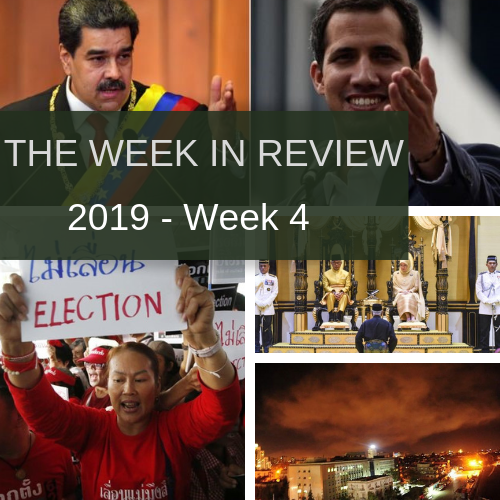
Recently the crisis in Venezuela took a new turn as the political landscape in the country saw a major shift. The acceptance of the opposition leader, Juan Guaido, as the legitimate leader of the country by the United States and its allies has created an immense amount of tension. President Maduro, on the other hand, is backed by Russia and China, which has led to a stalemate in the country vis-a-vis political leadership.
The United States, following the Monroe Doctrine, has always considered the South American countries as a part of their backyard. The step to back Guaido as the leader of the country has been done after allegations of corruption against Maduro, his reform in the country to consolidate his power have been a cause of concern for the United States.
The pressure built on the government by the United States backed sanctions has played a key role in the rise of popular angst against Maduro. However, the backing of Russia and China towards the Maduro government has become a cause of concern, as the stability of the country is necessary for both of them to protect their investments. The Trump Administration is already under a lot of pressure domestically; however, the need to assert their authority in the international arena is seen as vital, as it would be able to secure the support of the people not only in the US but also in Venezuela, which would create a stable ally in South America. Any aggression by Maduro would increase international pressure on his government, which further justifies the claim made by Juan Guaido.
Malaysia announced a new monarch after the bizarre and historic abdication of the previous monarch Sultan Muhammed V, after his marriage with Russian ex-beauty pageant winner surfaced in the media. He stepped down as the monarch after two years at the helm, this was the first time it happened in the history of Malaysian politics.
The new king, Sultan Abdullah Sultan Ahmad Shah, is a sports aficionado, and at 59 is well respected and admired among the Muslim-Malay population of the country. He has been a former athlete and also held important positions in FIFA as well as the head of the Malaysian FA. Sultan Ahmad Shah was tipped to be the king of the central state of Pahang and then become the monarch of Malaysia. However, in a surprising turn of events, the 'Conference of Rulers' comprising of eight rulers from the different states of Malaysia decided to elect him as the king and his deputy was selected as Sultan Nazrin Shah of Perak state.
Malaysia being a constitutional monarchy, elects a new king after every five years. The appointment has been greeted with a lot of positivity from the people and they are looking forward to a stable and prosperous future amidst the chaos and uncertainty which prevailed following the previous ruler's controversial exit.
After a 5-year long military rule and delayed elections, a date for elections has finally been fixed and decreed by King Maha Vajiralongkorn of Thailand. On the 24th of March 2019, Thailand has been permitted by the Royal Family to hold its first elections since the military coup in 2014.
In 2014, the military staged a coup and the civilian government of Yingluck Shinawatra was taken out of power. Thailand has since then been under the control of the military and all political activities were banned. The struggle towards fresh elections finally came through after activists protested and this ended with the military yielding to their request.
Currently the elections are a cause of excitement in Thailand with a wide spectrum of political parties and various allegiances gearing up. Even with elections around the corner, Thailand is far away from a fully functional democracy with the military still holding constitutional powers, which they threaten to use as and when needed. Even the candidates voted into power by the people will need the junta's seal of approval to form a government.
The Israeli military has confirmed that Israel carried out a series of airstrikes early Monday, the 21st of January, against Iranian targets in Syria. This was in response to an Iranian missile fired at the Golan Heights, which paved way for a hostile 24 hours between the two, hinting at a chance of further conflict in the future.
The Israel Defense Forces (IDF) struck Iranian targets in and around Damascus, including the city's international airport. The strikes took place overnight, targeting munitions depots, intelligence sites, a training camp and more, IDF Spokesman Lt. Col. Jonathan Conricus said. Additionally, Iranian warehouses at the Damascus International Airport were also attacked. The IDF said that secondary explosions were observed, implying that weapons had been hit. "The accumulation of recent attacks proves that we are determined more than ever to take action against Iran in Syria," said Prime Minister Benjamin Netanyahu. This hardliner stance has contributed in shaping the volatile nature of Israel-Iran relations, and is especially relevant considering the upcoming elections in Israel in April, 2019.